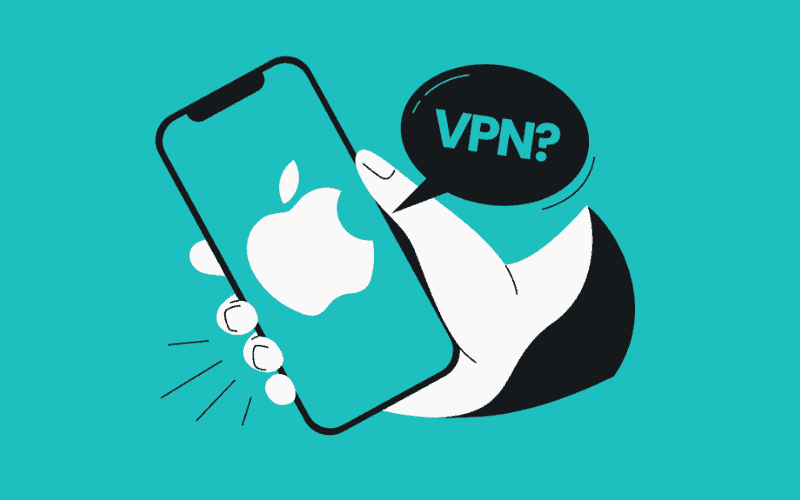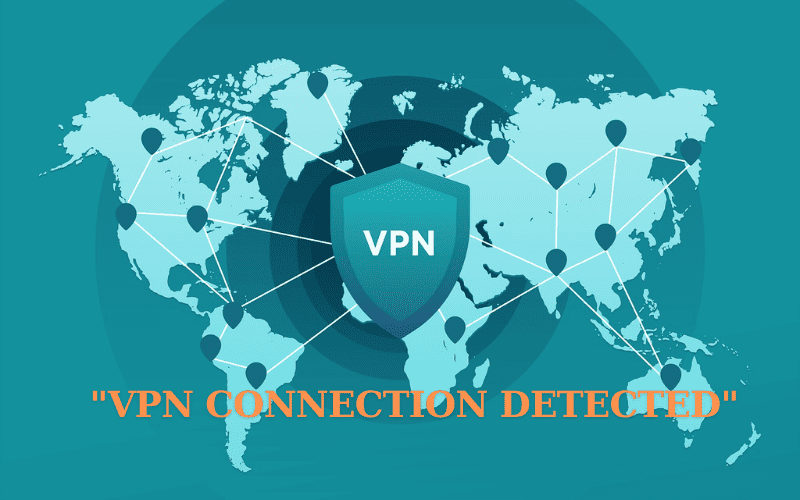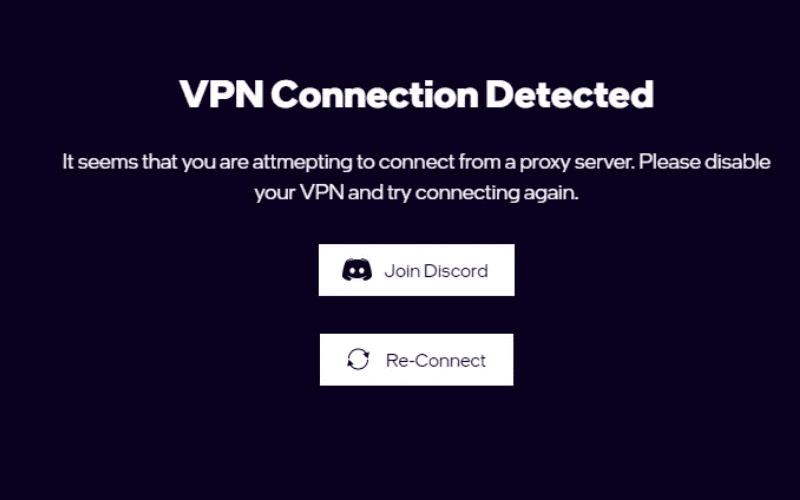In today’s society, the Internet has become increasingly widespread and indispensable. People have different choices for internet connection methods; some may use a personal network, while others may use a VPN connection. A possible scenario is your mobile device displaying a notification that a VPN connection is detected on your mobile device. What might be the reason behind this situation? Does it affect the mobile device? Let’s find out right after this.
What VPN connection is detected on your mobile device?
VPN connection detected on your mobile device refers to the device’s ability to recognize when a Virtual Private Network (VPN) service is being used. This detection can be indicated through a notification or an icon in the device’s status bar. VPNs are tools that create a secure and encrypted connection over a less secure network, such as the Internet, allowing users to protect their Internet traffic and hide their online identities. When a mobile device detects a VPN connection, it acknowledges that its internet traffic is routed through a VPN server, which can change the IP address and encrypt data to enhance privacy and security online. This feature is handy for users who wish to keep their browsing activities private or bypass geo-restrictions and censorship.

Causes of the “VPN Connection Detected” notification
The “VPN Connection Detected” notification on a mobile device can be triggered by several factors, including:
Active VPN application: The most common cause is activating a VPN application on the device. When a VPN app runs, it modifies the device’s network settings to route traffic through the VPN server, prompting the system to display the notification.
Background VPN service: Some applications or services may run VPN connections in the background without explicit user interaction. This could be for data protection, app security features, or bypassing network restrictions.
Network policy or configuration: In specific networks, mainly corporate or educational networks, administrators may configure the network to detect and notify users of VPN use as part of their security policies to control network traffic and enforce data security protocols.
Device security features: Some mobile operating systems include built-in security features that detect and notify users of significant changes to network configurations, including using VPNs. This is to ensure users are aware of potential security enhancements or vulnerabilities.
Third-party security apps: Security or parental control applications installed on the device may monitor network activity and alert users to VPN connections as part of their feature set to inform about or restrict certain types of internet access.
Understanding the specific cause of the “VPN Connection Detected” notification is essential for managing your device’s network settings and maintaining your online privacy and security preferences.

Effects of detecting a VPN connection
Detecting a VPN connection on a mobile device can have various effects, some of which may impact the user experience and device performance. Here are the main effects:
Hinders access certain websites or applications: Some websites and applications restrict access from VPN connections due to licensing agreements, geo-restrictions, or security policies. When a VPN is detected, these services may block access, limiting the content or features available to the user. This is commonly seen with streaming services, financial platforms, and region-specific content.
Causes lag or slow network speed: VPNs encrypt data traffic, which can add overhead and potentially slow down the internet connection. The impact on speed may vary based on the VPN server’s location, the quality of the VPN service, and the current network conditions. Users might experience increased loading times, buffering, or delays in data transmission, affecting activities such as streaming, gaming, and downloading.
Raises security issues: While VPNs are generally used to enhance security and privacy, detecting a VPN connection could indicate potential security concerns, especially if the user is unaware of any active VPN services. Unauthorized VPN applications or services running on the device could compromise security by routing data through unsecured or malicious servers. Additionally, some poorly implemented or outdated VPNs may have vulnerabilities that could expose user data to interception or leaks.
It’s essential for users to be aware of these potential effects and to use reputable VPN services. They should also regularly review their VPN settings and the applications installed on their devices to ensure their online activities remain secure and perform as expected.
How to address the “VPN Connection Detected” notification
Addressing the “VPN Connection Detected” notification involves two main steps: identifying the cause and implementing solutions. Here’s how to approach each step:
Identifying the cause of “VPN Connection Detected.”
– Check if you are using a VPN application: Review the apps currently running on your device to see if a VPN application is active. Sometimes, VPN apps may run in the background without a prominent notification.
– Check the Wi-Fi network being used: Some Wi-Fi networks, especially public or corporate networks, might automatically use a VPN for added security. Verify your network settings to see if this is the case.
– Check for applications or services using a VPN: Certain apps, particularly those focused on security or content access, may create VPN connections. Review app permissions and settings to identify any that might use a VPN.
– Update software and network settings: Ensure your device’s operating system and all applications, particularly VPN or security apps, are up-to-date. Outdated software can sometimes cause unnecessary notifications or conflicts.

Solutions for VPN connection is detected on your mobile device
– Turn off the VPN application (if not necessary): If you don’t need the VPN connection for your current activity, consider disabling the VPN to avoid potential issues or access restrictions.
– Use a private Wi-Fi network: For a more stable and secure connection, connect to a private Wi-Fi network where you don’t need to use a VPN for security or privacy.
– Reconfigure applications or services using a VPN: If specific apps require a VPN, adjust their settings to minimize disruptions or select alternative apps that don’t necessitate VPN use.
Reset network settings to default: This can resolve misconfigurations that might unnecessarily trigger your device’s VPN notifications. Remember that this action will delete all saved Wi-Fi networks and passwords, so consider it a measure of last resort.
– Contact your mobile service provider or application developer for support: If you’re experiencing persistent issues or the notification arises without apparent reason, seeking professional support can help identify and resolve underlying problems.
By systematically addressing the cause of the “VPN Connection Detected” notification and applying the appropriate solutions, you can ensure that your VPN usage aligns with your security, privacy, and connectivity needs.

In short, the “VPN connection is detected on your mobile device” notifications will affect mobile devices and user experience. This notification will frequently affect access to some websites, causing slowness and lag and possibly causing loss of personal information due to bad actors’ exploitation. Hopefully, this article will provide more solutions to overcome the above situation. For more information, please visit the website https://proxyrotating.com/ to explore.
>>> See more:
A vpn is used primarily for which purpose
Vpn gate public vpn relay servers
